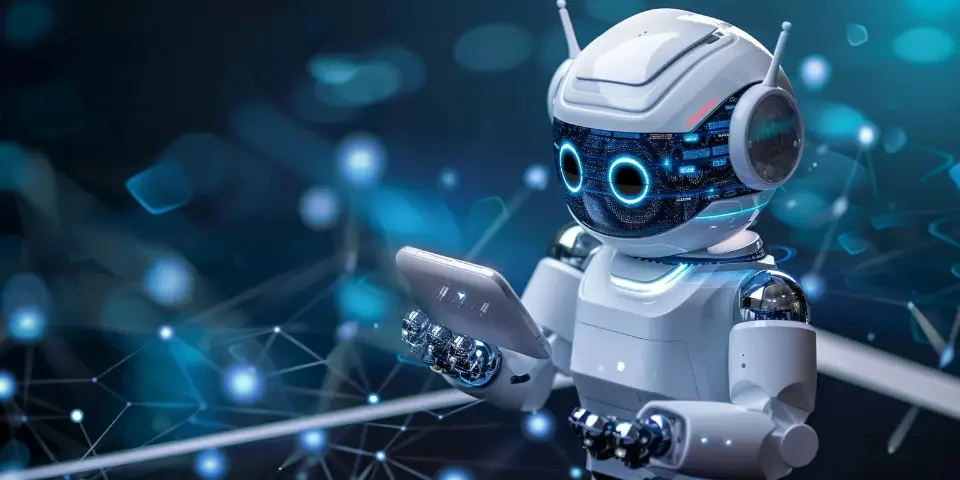Chatting with the Future AI-Powered Virtual Companions
Imagine having a virtual companion who understands your emotions, engages in meaningful conversations, and provides companionship whenever you need it. Thanks to artificial intelligence (AI) advancements, this future is not far away. AI-powered virtual companions are transforming the way we interact with technology and redefine the boundaries of human-computer interactions. In this article, we will explore the fascinating world of AI-powered virtual companions and discuss their impact in various aspects of our lives.
1. Emotional Support
AI-powered virtual companions have the potential to provide emotional support to individuals dealing with loneliness, anxiety, or depression. By analyzing user inputs, facial expressions, and tone of speech, these companions can offer empathetic responses and suggest coping mechanisms. With their constant availability, they can serve as trusted confidants and alleviate emotional distress.

One remarkable example is the AI-powered virtual companion "Replika". This app uses natural language processing algorithms and machine learning techniques to simulate conversations like you are talking to a human friend. Replika can learn about your interests, goals, and feelings, providing personalized advice and emotional support.
2. Learning and Education
AI-powered virtual companions have the potential to revolutionize learning and education. They can offer personalized tutoring, adapt to individual learning styles, and provide interactive lessons. These companions can assist in various subjects, from math and science to language learning and history.
An app called "Duolingo" utilizes AI technology to create virtual language learning companions. It provides customized language lessons based on your proficiency level and tracks your progress. Duolingo's AI companion engages in conversations, corrects pronunciation, and encourages language learners to practice speaking skills.
3. Health and Fitness
AI-powered virtual companions can also play a vital role in promoting health and fitness. They can offer personalized workout routines, track physical activity, and provide nutritional guidance. These companions can motivate individuals to achieve their fitness goals and maintain a healthy lifestyle.
"Fitbit", a well-known wearable device and app, incorporates AI to provide a virtual fitness companion. It tracks your daily steps, heart rate, and sleep patterns, offering personalized insights and tips for improving your health. Users can engage in challenges and compete with friends, making fitness a fun and engaging experience.
4. Productivity and Time Management
AI-powered virtual companions can help individuals become more productive and manage their time effectively. They can assist in organizing tasks, prioritizing to-do lists, and providing reminders. By understanding your work patterns and preferences, these companions can optimize your workflow and reduce procrastination.
An example of such a virtual companion is "Todoist", a popular app for task management. Todoist utilizes AI algorithms to help individuals plan, track, and collaborate on tasks. The app's virtual companion suggests smart due dates, provides reminders, and adapts to your productivity style, ensuring that important tasks are never missed.
5. Entertainment and Leisure
AI-powered virtual companions can enhance entertainment and leisure experiences. They can recommend personalized music playlists, suggest movies based on your preferences, and engage in entertaining conversations. These companions can cater to your interests, creating a more immersive and enjoyable leisure time.
An excellent example is the AI-powered virtual assistant "Alexa" developed by Amazon. Alexa can play music, answer questions, control smart home devices, and even tell jokes. With its continuously evolving capabilities, Alexa offers a hands-free and interactive entertainment experience for users.
6. Social Interaction and Relationships
AI-powered virtual companions can bridge the gap between social interaction and technology, especially for individuals with social anxiety or difficulties in forming relationships. They can engage in conversations, simulate friendships, and offer advice on social skills. These companions can provide a sense of belonging and help develop communication abilities.
"Mitsuku", an award-winning AI chatbot, is an excellent example of such a virtual companion. It engages in natural and intelligent conversations, showcasing its understanding of various topics. Mitsuku can discuss anything from current events to personal interests, making it an ideal virtual friend for those who seek social interaction.
7. Personal Assistance and Convenience
AI-powered virtual companions can act as personal assistants, simplifying daily tasks and enhancing convenience. They can provide weather updates, schedule appointments, make reservations, and perform internet searches. These companions aim to streamline your life, providing information and assistance whenever you need it.
"Google Assistant" is an intelligent virtual companion available on smartphones and smart devices. It can perform various tasks, such as setting reminders, sending messages, and providing real-time information. By understanding user preferences and context, Google Assistant offers a seamless and convenient experience.
Conclusion
The rise of AI-powered virtual companions has the potential to transform multiple aspects of our lives. From emotional support and education to health and productivity, these companions are revolutionizing human-computer interactions. As technology continues to advance, it is crucial to ensure ethical considerations and privacy safeguards are in place to maximize the benefits of AI-powered virtual companions while addressing potential concerns.
Frequently Asked Questions (FAQs)
Q1: Are AI-powered virtual companions capable of understanding human emotions?
A1: Yes, AI-powered virtual companions use various techniques, such as natural language processing and facial expression analysis, to understand and respond to human emotions.
Q2: How do AI-powered virtual companions ensure user privacy and data security?
A2: Virtual companion apps and platforms employ stringent security measures, such as encryption and data anonymization, to protect user privacy and data.
Q3: Can AI-powered virtual companions replace human relationships?
A3: While virtual companions can provide companionship and support, they cannot fully replicate the complexity and depth of human relationships. They are meant to complement rather than replace human interactions.
References
1. ChatGPT: Language Models are Few-Shot Learners. (2021, March 1). OpenAI. https://openai.com/blog/chatgpt
2. Vijayenthiran, V. (2020, December 11). Can virtual companionship replace real relationships? The New York Times. https://www.nytimes.com/2020/12/11/smarter-living/virtual-companionship.html
Explore your companion in WeMate